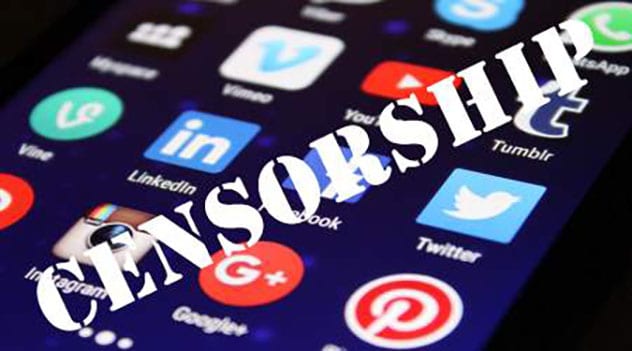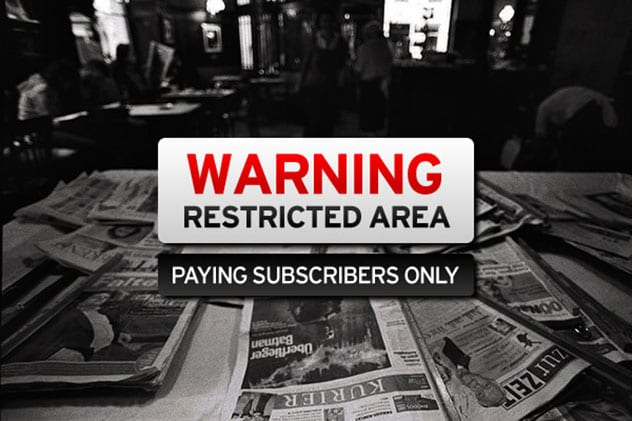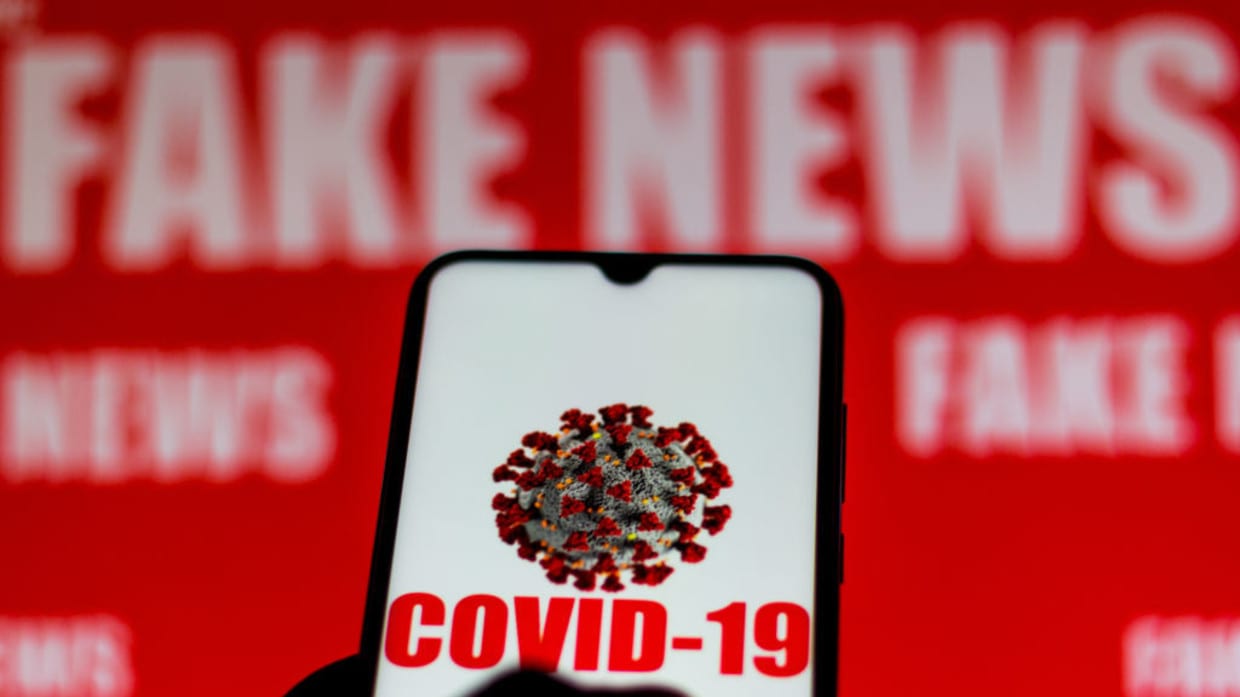 History
History  History
History  Health
Health 10 Everyday Activities That Secretly Alter Consciousness
 History
History Top 10 Historical Disasters Caused by Someone Calling in Sick
 Animals
Animals 10 New Shark Secrets That Recently Dropped
 Movies and TV
Movies and TV 10 Forgotten Realities of Early Live Television Broadcasts
 Technology
Technology 10 Stopgap Technologies That Became Industry Standards
 Weird Stuff
Weird Stuff 10 Wild Facts About Taxidermy That You Probably Didn’t Know
 Travel
Travel 10 Beautiful Travel Destinations (That Will Kill You)
 Miscellaneous
Miscellaneous 10 Modern Marriage Rituals Born from Corporate Branding
 Weird Stuff
Weird Stuff Ten Bizarre Visions of 2026 from Fiction
 History
History 10 “Modern” Problems with Surprising Historical Analogs
 Health
Health 10 Everyday Activities That Secretly Alter Consciousness
 History
History Top 10 Historical Disasters Caused by Someone Calling in Sick
Who's Behind Listverse?

Jamie Frater
Head Editor
Jamie founded Listverse due to an insatiable desire to share fascinating, obscure, and bizarre facts. He has been a guest speaker on numerous national radio and television stations and is a five time published author.
More About Us Animals
Animals 10 New Shark Secrets That Recently Dropped
 Movies and TV
Movies and TV 10 Forgotten Realities of Early Live Television Broadcasts
 Technology
Technology 10 Stopgap Technologies That Became Industry Standards
 Weird Stuff
Weird Stuff 10 Wild Facts About Taxidermy That You Probably Didn’t Know
 Travel
Travel 10 Beautiful Travel Destinations (That Will Kill You)
 Miscellaneous
Miscellaneous 10 Modern Marriage Rituals Born from Corporate Branding
 Weird Stuff
Weird Stuff Ten Bizarre Visions of 2026 from Fiction
Top 10 Signs We Are Entering A New Dark Age
Before we start we have to clear something up: the Dark Ages were not dark; in fact, most of the reasons people think the early Middle Ages were dark are nothing but common misconceptions about the era.
In the introduction to Top 10 Reasons The Middle Ages Were Not Dark, I said: ‘[T]he term “dark ages” is almost as ancient as the period itself—it was coined in the 1330s by Petrarch, the Italian scholar, to refer to the decline of Latin literature. It was later taken by the protestant reformers (16th century) and then the members of the Enlightenment (18th century) as a derogatory term with much broader implications, because they saw their own “enlightenment” as absent from the earlier period.’
Top 10 Terrifying Assaults On Free Speech Happening Right Now
In 2011 I wrote one of our most controversial articles: Top 10 Reasons We Should Revive the Dark Ages; now that we are apparently seeing that come true, I am starting to change my mind!
Here, regrettably, are the top ten signs that we are now entering into a new age of darkness.
10 Social Media Censorship

Twitter has recently announced a new tool in their fight against free speech and the pursuit of wisdom: person-by-person blocking. The new setting will allow users to select who can and cannot reply to their tweets. In other words, you can curate an entire debate in which only those people who agree with your point will be visible to anyone reading. Facebook is now adding notifications to certain posts to warn people that they may contain false information (even when they don’t!), and instagram is deleting posts that may cause offense to some people.
On top of all of this, entire groups are being outright banned from all of the aforementioned sites for simply offending others or spreading information which the owners of those sites don’t agree with (whether they are right or not). In the US where most of these companies are based, they are within their legal rights to suppress free speech. The final solution for these horrible attacks on the sharing of knowledge is for new sites to emerge unfettered by political bias of billionaire owners and stockholders who see the bottom line as being more important than the love of wisdom.[1]
Incidentally, feel free to add me as a friend on Facebook. I promise I won’t censor you!
9 Supression of Speakers on Campuses
Freedom of speech includes the right to protest speech you disagree with. Those who punch protestors at rallies can no more claim to support free speech than Lenin could claim to support capitalism. But there’s exercising your democratic right to protest, and then there’s using that right to completely shut down the views you’re protesting against. Recently, it seems that protestors are aiming solely for the latter. The idea of creating an environment your opponent is afraid to enter seems to have really taken off around 2013. Prior to that, protests at campuses rarely blocked an invited speaker from attending. Today, you hear about canceled lectures with mind-numbing regularity.
Speakers like Milo Yiannopoulos (clip above) have been chased off college campuses, as have speakers like pro-abortion Supreme Court justice Carol Beier. Each time it happens, it demonstrates how little value is now placed on free speech and enlightened debate, versus simply shouting your enemy down. We should be incredibly concerned that so-called bastions of free-speech, namely universities, are now the source of so much anti-freedom. When debate ends, so does the discovery of new knowledge. This is probably a good time to recommend our list on Top 10 Ways College Makes You Dumb.[2]
8 YouTube Censorship
The men behind the curtain at Google have decided to save us from ourselves and suppress conspiracy theories and other content they dislike. Their reason is that they are preventing us from being misled. That certainly brings to mind an incredibly wise quote by T. S. Elliot: “Most of the evil in this world is done by people with good intentions.” The motivation of Google (if it is true) can seem to be from virtuous beginnings, but there is one problem: conspiracy theories are often true. For example Project MKUltra, the horrifying CIA mind control experiment. And what about the theory that support for the Iraq War was falsely created due to lies about babies being thrown from incubators?
And speaking of wars, the Vietnam war was based on one great big lie, spoken of only in conspiracy theory circles until the CIA confirmed it to be true. I am, of course, referring to the Gulf of Tonkin incident. How many discussions of conspiracies are being removed and hidden by Google right now? And surely right now is when we most need these discussions around China and the coronavirus and the Deep State in politics. Fortunately because of the fact that Listverse deals only occasionally in conspiracies, our video above has been overlooked so far by Google censors . . . enjoy it while you can![3]
7 Google Search Destruction

In the last three decades we have handed over the curation of the wealth of human knowledge to a company that had the motto “don’t be evil”; until 2018 when it quietly placed it in the last sentence of its code of conduct, now just an afterthought. The last two years have seen Google progressively destroy the quality of its search results, first filling them with sponsored posts and now, as of May 2020, seemingly-replacing the entire index with results that give Google and its friends financial support during Coronavirus.
Online webmaster forums are full of website owners declaring their sites dead as 50–70% of their traffic from search has been slashed in favor of big brand results from companies aligned with Google’s world view. It is probably fair to say that the future of the world wide web is one in which most search results end in a 404 error (page not found). Google is effectively shutting down the Internet. With all the search traffic gone, the sites that do remain will be compelled to look to subscription models:[4]
6 Chained Bibles

Remember the chained Bibles from the last Dark Ages (hint: they were chained up because they were incredibly valuable, not to stop people reading them)? Guess what? They’re coming back! As Google has begun what seems to be its final onslaught against small and medium information websites and YouTubers, more information is either disappearing or is being locked behind paywalls and subscription models. This is something we discussed for Listverse in the past.
Once all the best content is locked away, we will have finally reached the point where the web is the exact opposite of what it was meant to be. Instead of the dissemination of information to the whole world for free (paid for by ads obviously), we will have a tightly locked vault of knowledge for only those who can afford to read it. And unlike the Bible in the Middle Ages, we don’t have internet priests who can read it to us every day. This truly is the intentional removal of learning for all but an elite rich. And by the way, this is not just about small websites and creators:[5]
Top 10 Ridiculous Instances Of Censorship In Pop Culture
5 Joe Rogan Spotify
The biggest name in Podcasting has just announced that he is moving to Spotify where, for the inconvenience of listening to an ad, you can access his podcasts. He is probably the first really big name to tell Google he won’t tolerate their censorship. Up until now, Rogan was earning $36 million a year for his podcasts with Google, but Spotify lured him in with a promise of $100 million. It is no wonder he is willing to take the risk and move to a paid service. It is great for Joe in terms of censorship—until Spotify gets bought by Google or begins to implement its own restrictions on content. It does, however, serve to show us just how restrictive access to information is going to become.
Only time will tell whether a mass-exodus of content makers to this new platform will serve to broaden or reduce our overall access to knowledge. We are witnessing a consolidation right now into a few extremely large corporations and their principles and ethics (or lack thereof) will determine whose voices and what stories we all hear in the future.[6]
4 Wayback Machine Censorship

“‘Who controls the past,’ ran the Party slogan, ‘controls the future: who controls the present controls the past.’” These words from George Orwell’s frighteningly prescient novel 1984 ring true particularly today. The WayBackMachine or Internet Archive is an amazing site with snapshots of most parts of the world wide web going back decades. It has, on many occasions, been used to reveal deceptive editing from the mainstream media. But unfortunately it has now taken a dangerous turn down the dark road of censorship.
Recently, the WaybackMachine begun marking certain archived pages as disinformation, particularly as it relates to the Coronavirus. It is retroactively stating that historical news or events were not true. It is only a matter of time before they start expunging the original content itself or replacing “misinformation” with “facts” as determined by unnamed movers behind the scenes.[7]
3 Free Discussion in Science
Scientists and doctors are now routinely fired for discoveries (or even espousing theories) that are now deemed contrary to ideas “proven” by scientific consensus (argumentum ad verecundiam anyone?) The fear of causing offense (or worse: causing offense to those with very loud social media presences) is largely behind this dreadful situation. Scientists should not be stifled and it doesn’t matter how offensive their discoveries or views, they should be put out in the fresh air for debate. If we are not allowed to argue against ideas, how can we truly show them to be wrong—or to prove their opposite to be true?
From the environment to race and gender, a new “theology” is being formed and questioning it is tantamount to heresy with shaming and ostracism becoming the new burning at the stake.[8]
2 Zombie Apocalypse

The first thing I did when New Zealand shops and restaurants re-opened after the coronavirus lockdown was spend the day in the city browsing the shops and having lunch with friends. Under the new precautions that allow us to keep everything open, some shops have to limit the total number of customers inside their stores at any given time. This has led to queues outside many of our basic shops—queues the likes of which one normally would only see in “communist” or socialist nations.
Wellington City has no malls so the streets are now filled with people politely waiting outside stores whilst staring at shining phone screens in their hands. It dawned on me: the zombie apocalypse is not something from a horror movie or TV series: it is here right now. Instead of talking and sharing our experiences and knowledge, instead of reading a book or even a magazine, people are playing games or watching videos on YouTube (the ones Google hasn’t suppressed yet). This is the zombie apocalypse; and it is voluntary. Until you see a city street full of people with vacant faces staring down, you can’t truly appreciate how horrifying this really is. As freely as we have chosen to destroy our brains in this way, we must also freely choose to stop. At this stage that seems unlikely. I hope I am wrong.[9]
1 Historic Information Sources May Vanish

Social distancing is going to have many serious knock-on effects that are unforeseen. With some places already banning cash due to paper being such a good carrier for the virus, it is plausible to think that institutions of human knowledge such as libraries and, to a lesser degree museums, may eventually also be shuttered in the name of public safety. This would be partially manageable if it weren’t for the fact that the rest of the items on this list are also occurring at the same time.
Once all sites are gone except the highly questionable Wikipedia at the end of Google’s search holocaust, we could find ourselves finally untethered from the shared pool of knowledge of our ancestors upon which we have built our amazing and wonderful society.[10]
+ Why Is This Happening?
It is easy to control one large corporation and impossible to control thousands of small ones. Distributist economics (my favorite kind) argues that there are not too many capitalists, but rather too few (I stole that from G. K. Chesterton), preferring the means of production to be held by many family business rather than giant corporations. What we are seeing in the world now is a drive to the opposite. The powers that be, whatever you want to call them, understand that to maintain control of large parts of society and how we think and function requires the end of small businesses. This may not be 100% the reason for the bizarre changes we are now living through, but regardless of the intent, it is safe to say that every single day, more and more information is being removed from the internet and made inaccessible.
We can no longer pretend that we are in a burgeoning golden age of knowledge . . . we stand on the brink of the greatest dark age in human history. But, to end on a second (and more positive) quote by T. S. Elliot, “The darkness declares the glory of light.” Perhaps we can take some solace in that.[11]
10 Times Censorship Made Something Way More Offensive








